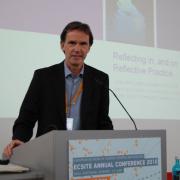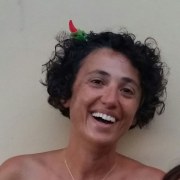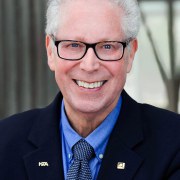Transforming dialogues with citizens into learning experiences for scientists
Scientists are learners. They professionally transform their observations into their research, which brings about new questions and therefore new research. But do they apply this 'continuous learner' attitude when they interact with the public?
We are curious about the methods and approaches that allow scientists to learn from interactions with citizens. It is not something that happens automatically, nor is it always included in science communication training for scientists. This learning is often very personal, content and context specific, and not necessarily captured by techniques of communication or dialogue.
What skills, knowledge and attitudes do scientists need in order to transform a dialogue experience into a learning experience? What are the roles of the different actors in the learning ecosystem as we work together in this direction?
Facilitator
Center for Advancement of Informal Science Education
Session speakers
Director of science mediation and education
I will address the topic through two examples. 1) a training course that Traces runs at the Centre for interdisciplinary research in Paris, where we stopped teaching scientists how to talk to the public, and we started teaching them how to listen to the public. 2) the approach that we try to adopt in all our activities: ensure that scientists intervene in reactions to a stimulus from the public (that is, they should never be the first to talk in a dialogue event).
Head of Public Engagement
I will approach the topic through the experience of our Museum in training scientists in public engagement with workshops and practice with our visitors. I will shortly present the experience of a recent research project on our activities of public engagement and will discuss which are the best activities involving citizens that stimulate scientists learning, the importance of reflective practice and the alley between museum educators and scientists.
Institute for Learning Innovation
I will explore this topic through the lens of the Portal to the Public project, now it its second decade. The project is rooted in the desire to bring scientists and community members together for face-to-face interactions that, ideally, result in mutual learning. As we explore future phases of the project we are looking more at what it means for a scientist to approach these interactions with humility and to recognize and learn from the expertise community members bring to each interaction.




